PDF chapter test TRY NOW
Human bodies are made up of 200 specialised cell types, each of which can perform a specific function.
- Neurons or nerve cells transfer signals
- Cardiac cells contract to pump blood
- Pancreatic cells that produce insulin
Example:
These specialised cells are called differentiated cells.
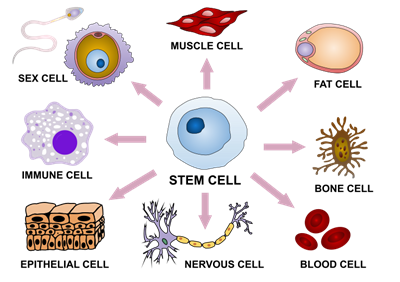
Development of body cells from stem cell
Stem cells, in contrast to differentiated cells, are a mass of undifferentiated or unspecialised cells with variable potency. The following are two important properties of stem cells that set them apart from other cells:
Potency refers to the ability to differentiate into different types of cells.
a. It can divide and give rise to more stem cells through self-renewal.
b. It can give rise to specialised cells with specific functions through the process of differentiation.
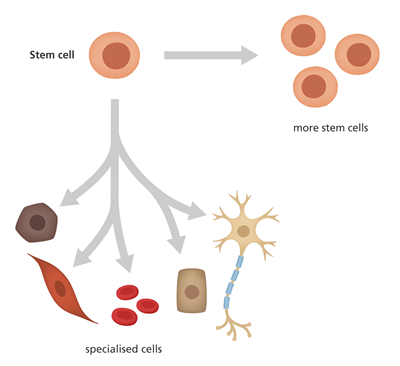
Properties of stem cells
Types of stem cells:
i. Embryonic stem cells (ESC):
They are derived from the inner cell mass of the blastocyst. ESCs can be extracted and cultured from early embryos. Embryonic stem cells can differentiate into any cell in the body.
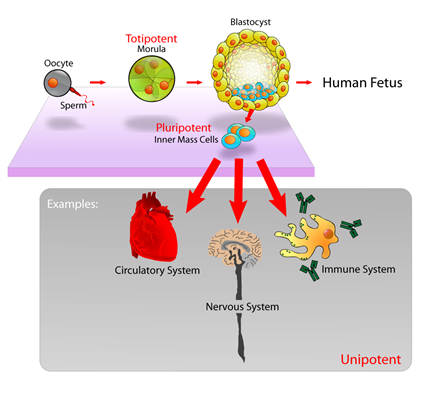
Embryonic stem cells
ii. Somatic stem cells or adult stem cells:
They are found in both neonatal (newborn) and adults. Somatic stem cells can divide and give rise to specific cell types. They can be found in amniotic fluid, the umbilical cord, and bone marrow.
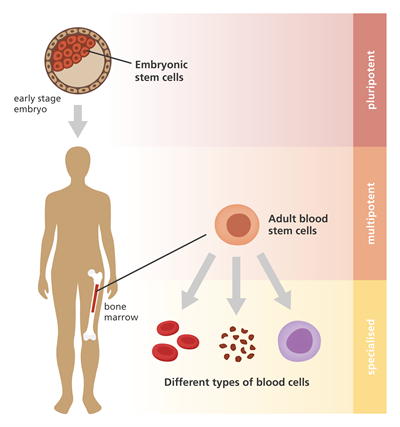
Adult stem cells
Stem-cell Therapy:
Sometimes the cells, tissues and organs in the body might be permanently damaged or lost due to genetic conditions, injury or disease. In such situations, stem cells are utilised for the treatment of diseases. The procedure is known as stem-cell therapy. Neuronal stem cells can be utilised to replace the damaged or lost neurons in patients with neurodegenerative disorders, including Parkinson's disease and Alzheimer's disease.
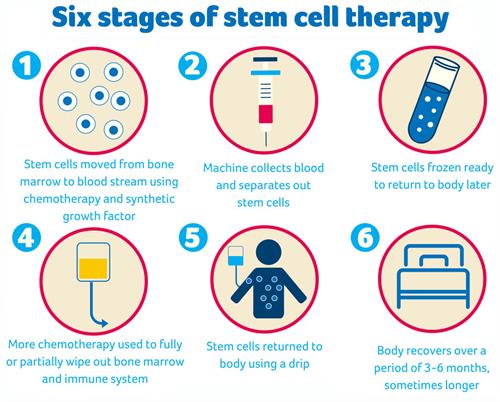
Steps to proceed the stem cell therapy for leukemia
Reference:
https://www.flickr.com/photos/yourgenome/34585744424
https://www.flickr.com/photos/yourgenome/34618100763
https://commons.wikimedia.org/wiki/File:Stem_cells_diagram_EST.png#/media/File:Stem_cells_diagram.png
https://commons.wikimedia.org/wiki/File:Final_stem_cell_differentiation_(1).svg
